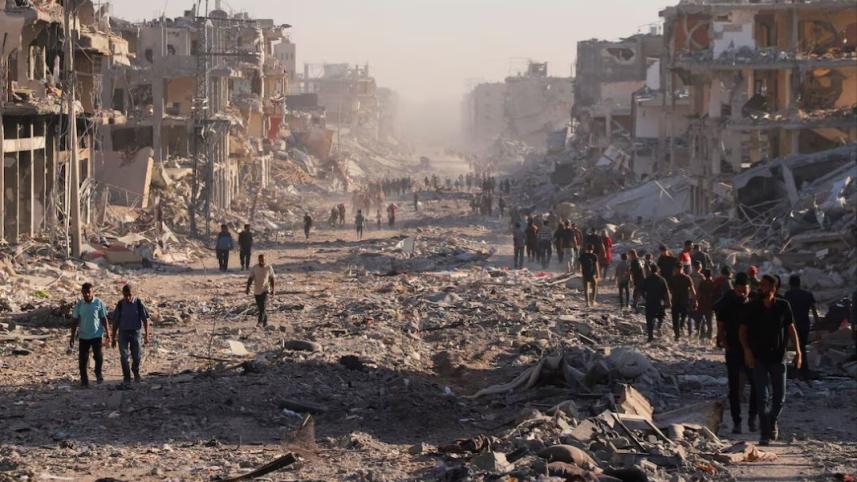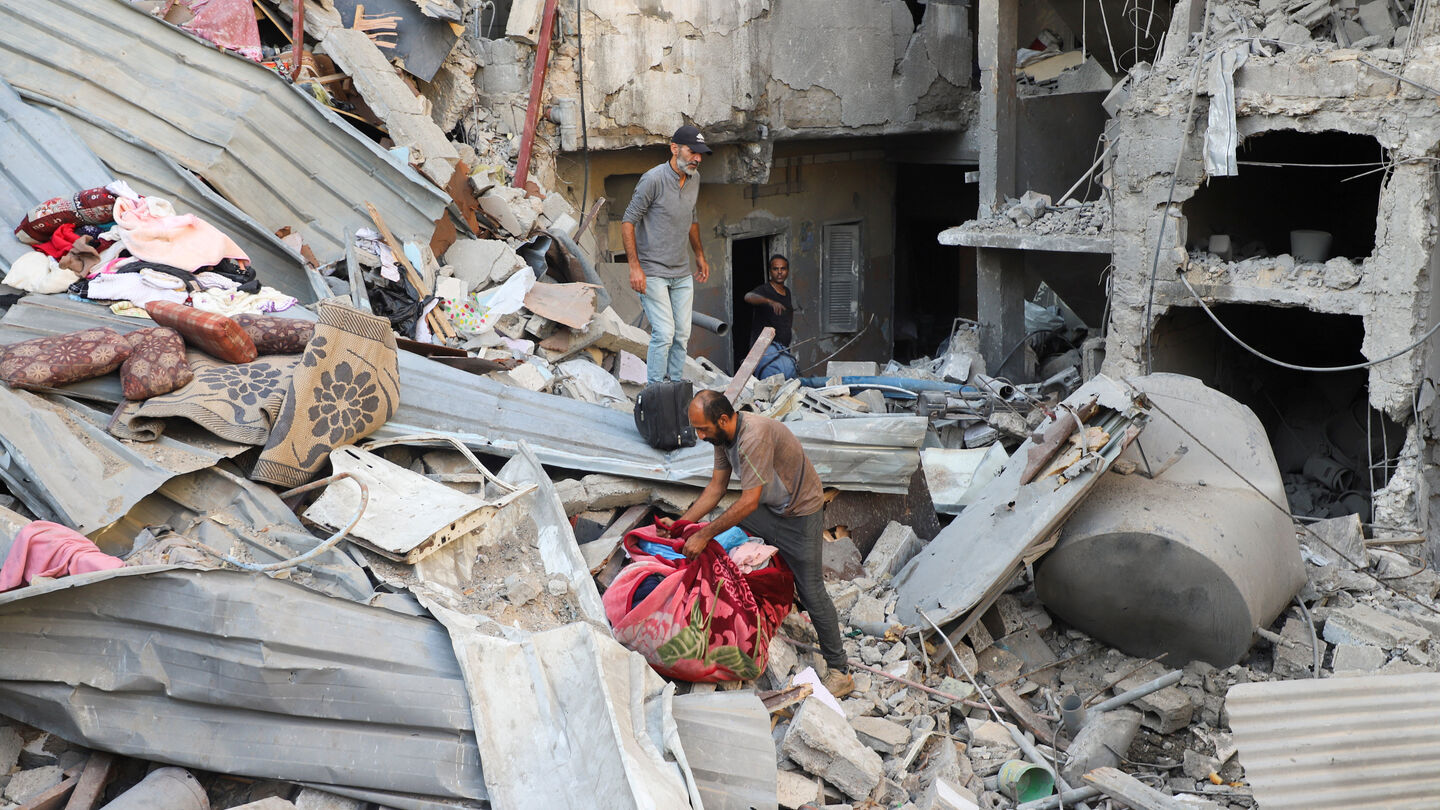Why the Gaza ‘peace treaty’ is a victory for violence, not peace

As smoke rises from the ruins of Gaza, world leaders are hailing a new "peace deal." But this treaty is another sleight of hand. Weapon of choice: language. Victims: the voiceless and those on the wrong side of power.
Words may not kill, but they shape how we perceive killing by controlling meaning and dulling empathy. They mute the moral register, turning human catastrophe into something sterile: "international affairs."
To label the carnage in Gaza a "war" rather than a "massacre" is not semantics; it is strategy. The term "war" somewhat normalises the violence. The word "massacre," by contrast, is a moral accusation that demands outrage and intervention.
By any objective criteria, this is no war. With Palestinian fatalities outnumbering Israeli ones by more than twenty to one, the grim ratio speaks for itself. Yet the official discourse resists the language of slaughter, preferring the sanitised symmetry of "war." This is how language is subjugated: dictate the terms, and you dictate the response.
Modern conflict comes wrapped in sterilised discourse that allows us to discuss horror without ever naming it. Innocent civilians killed by bombs and bullets become "collateral damage." A phrase like "surgical strike" implies precision, even when entire apartment blocks are levelled. Executing people on sight is described as "neutralising threats," while "human shields" shifts blame for civilian deaths onto the very population being bombed.
This jargon, repeated endlessly by anti-Palestine officials and echoed by Western media, creates emotional disconnect. A headline about "another day of war in Gaza" sounds tragic but routine. Imagine, instead, "another day of massacre in Gaza."
The official narrative—a "war on Hamas" fought through "security measures"—collapses when confronted with the reality on the ground. Officials speak of "precision strikes," yet the UN reports that 94 percent of Gaza's hospitals and over 90 percent of its schools have been damaged or destroyed. They speak of "necessary security measures," yet the world witnessed a "complete siege" that choked off food, water, and medicine, inducing famine for over half a million people.
The toll is staggering. Over 67,000 Palestinians—roughly 3 percent of Gaza's population—have been killed, the vast majority civilians. More than 1,700 health workers have been killed in what UN experts call the "targeted destruction of Gaza's health care system." This systematic demolition of civilian infrastructure, far exceeding any conceivable hunt for militants, reveals not a campaign hindered by "human shields," but a level of force that is fundamentally indiscriminate. The juxtaposition of the sanitised narrative and the physical ruins should be unbearable.
Now, the diplomatic narrative shifts to a "peace plan," presented as a vision of "a strong, durable, and everlasting peace." But the proposals championed by global powers reveal how the language of peace is used to codify control.
These plans consistently require one side to fully surrender in exchange for a halt to the offensive. Importantly, they exclude any mention of Palestinian political aspirations. There is no provision for ending the occupation, no commitment to self-determination, and, as multiple analyses confirm, "no path for eventual reunification" with the West Bank in a future Palestinian state. Instead, they envisage Gaza's two million residents being governed like a protectorate under an interim authority intriguingly named the "Board of Peace."
Labelling such arrangements a "Peace Treaty" is the final act of linguistic subjugation. It allows the world to move on while the root causes—the blockade, the occupation, the denial of statehood—remain untouched. This is not peace; it is the pause between wars. And the twentieth century's partitions and protectorates that redrew the Middle East, not to mention South Asia, have shown that such patchworks never hold.
A peace treaty built on these terms is not just inaccurate—it is insidious. It gives the world order permission to sweep the Palestinian tragedy under the rug.
True peace cannot grow from distortion. Palestinians need the siege lifted, freedom of movement restored, and their right to self-determination recognised. A just resolution requires a mandate for de-occupation and genuine reconstruction, alongside guarantees for the safety of all civilians—Israeli and Palestinian alike.
And as Bangladeshis—a people whose own liberation finds itself on the frontlines of a battle of discourse—we know the price of silence too well. Our moral duty, then, is not only to speak, but to speak truthfully. We must call a massacre a massacre. We must call an occupation an occupation. Because peace built on lies is not peace at all—it is forever war.
Saba El Kabir is a sustainability practitioner. He can be reached at saba@cultivera.net.
Views expressed in this article are the author's own.
Follow The Daily Star Opinion on Facebook for the latest opinions, commentaries and analyses by experts and professionals. To contribute your article or letter to The Daily Star Opinion, see our guidelines for submission.

 For all latest news, follow The Daily Star's Google News channel.
For all latest news, follow The Daily Star's Google News channel. 

Comments